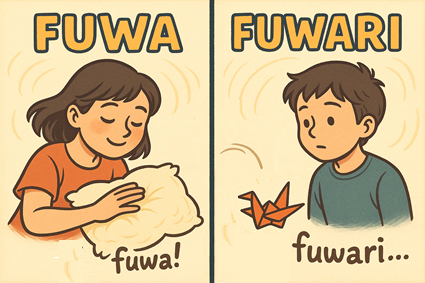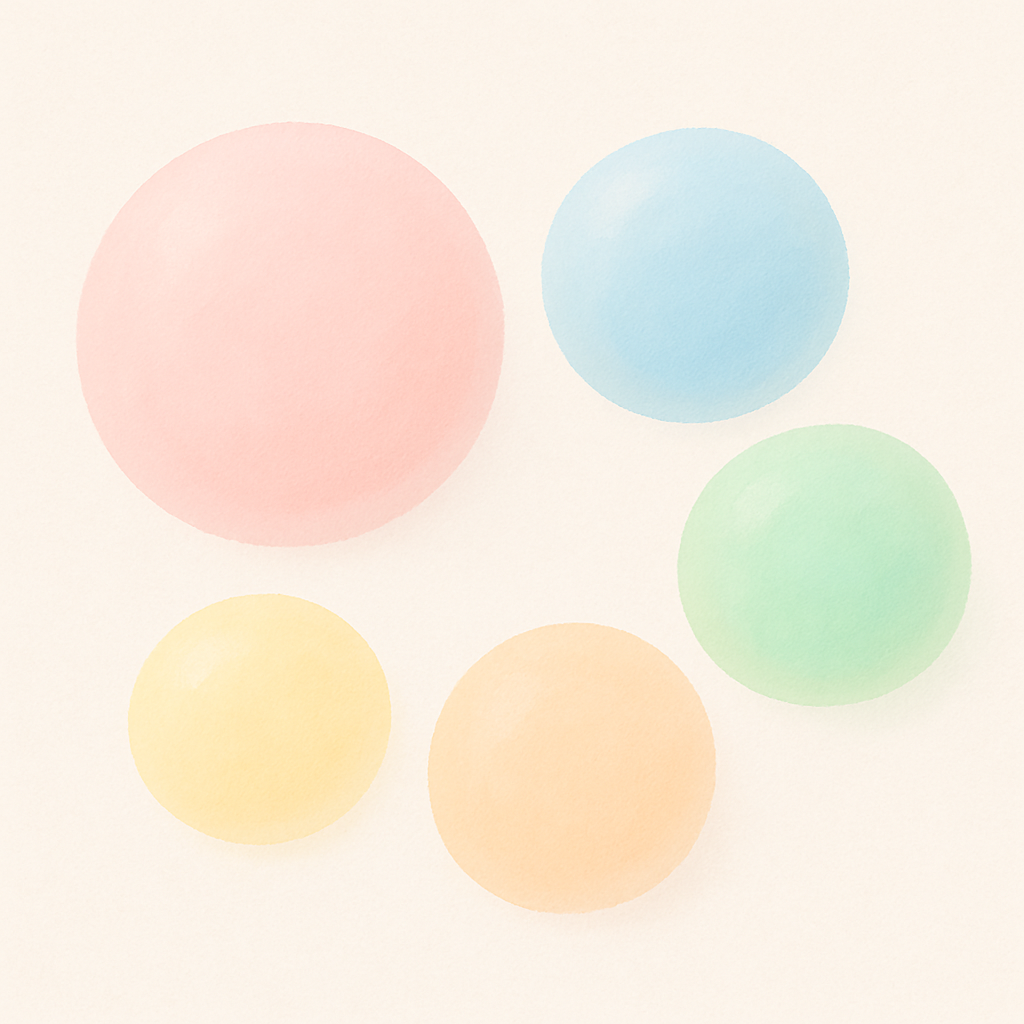Ever touched something so soft it seemed to disappear under your hand?
Or seen something drift slowly through the air, almost floating?
In Japanese, both of these moments have their own sounds:
Fuwa (ふわっ)
Fuwari (ふわり)
What is “Fuwa” (ふわっ)?
A short, light sound that expresses softness, fluffiness, or something that suddenly feels light.
Used for:
Something suddenly becoming fluffy or airy.
Touching soft pillows, blankets, or fur.
Hair puffing up lightly.
Nuance:
Quick, soft, tender, often cozy or cute.
Example:
She brushed her hand across the pillow — so soft, it went fuwa!
Pronunciation
foo-wah (short, clipped, light)

What is “Fuwari” (ふわり)?
A longer, continuous expression for floating, drifting, or gently moving without weight.
Used for:
- A feather drifting down through the air.
- Paper or petals floating softly.
- Someone landing lightly on their feet.
Nuance:
Graceful, gentle, slightly poetic.
Example:
He watched the paper crane fall slowly from the table — fuwari…
Pronunciation
foo-wah-ree (longer, drawn out, floating feeling)

Cultural Note
In English, you might just say “soft” or “float.”
But Japanese makes a clear distinction:
- Fuwa = sudden softness or light fluff.
- Fuwari = lingering, floating motion.
That’s why you’ll often see fuwari in novels or poetry, while fuwa shows up in casual speech, manga, or to emphasize cuteness.
Examples in Daily Life

Example 1: Soft pillow (Fuwa)
She brushed her hand across the pillow — fuwa!
Example 2: Paper crane (Fuwari)
He watched the paper crane fall slowly from the table — fuwari…
Try Using Them!
Watch a feather drift down? → Say fuwari…
Touch something fluffy? → Say fuwa!













Comments